The Vietnamese Rice certification mark has not yet been granted to any business for use.
According to the Ministry of Agriculture and Rural Development, currently only 2 products out of 13 key national agricultural products have been registered for protection in Vietnam, including: the “Vietnam Rubber” certification mark (owned by the Vietnam Rubber Association) and the “Vietnam Rice” certification mark (owned by the Ministry of Agriculture and Rural Development). The remaining products such as coffee, shrimp, tra fish, etc. are under construction.
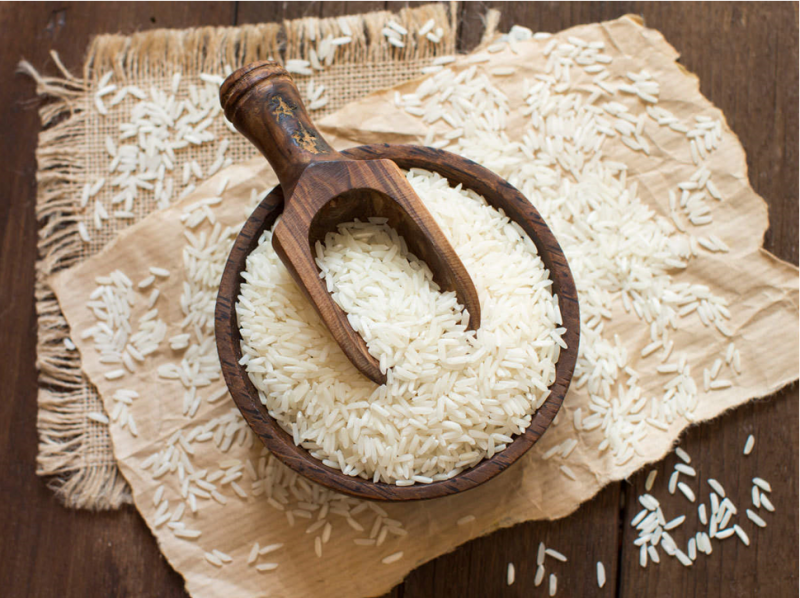 |
Building Vietnamese rice brand |
Project on building Vietnamese Rice brand according to Decision No. 706/QD-TTg of the Prime Minister with 5 contents including: Enhancing the image and brand value of Vietnamese rice ; developing national rice brand; developing regional and local rice brand ; developing enterprise brand, rice product brand.
For domestic registration, on August 9, 2018, the Department of Intellectual Property (Ministry of Agriculture and Rural Development) granted the National Certification Mark Vietnam Rice/Vietnam Rice to the Ministry of Agriculture and Rural Development as the owner and valid for 10 years.
Regarding international registration, according to the Report of the Department of Agricultural Product Processing and Market Development (now the Department has merged into the Department of Quality, Processing and Market Development), the Vietnam Rice/Vietnam Rice trademark (protected in the form of a Certification Mark) has been accepted by 19 countries as of October 2021, including: Indonesia, Russia and OAPI (including 17 African countries, specifically: Benin, Burkina Faso, Cameroon, Central African Republic, Chad, Comoros, Republic of Congo, Ivory Coast, Equatorial Guinea, Gabon, Guinea, Guinea Bissau, Mali, Mauritania, Niger, Senegal and Togo). There are 3 countries (China, Brunei and Norway) that have announced the protection of the Certification Mark.
Although the Vietnamese Rice Certification Mark has been protected domestically and in a number of countries, it has not yet been granted to any business for use due to some remaining problems.
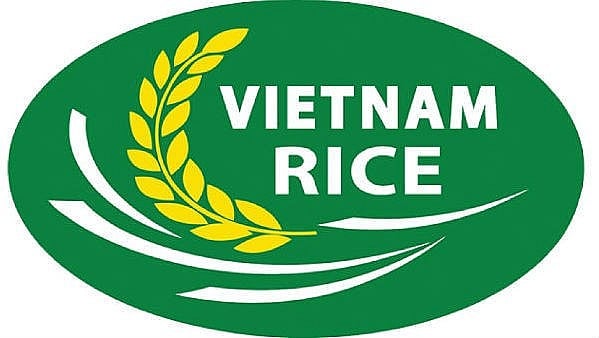 |
| There are 22 countries that protect the trademark Vietnam Rice. Currently, the Ministry of Agriculture and Rural Development is the owner of this trademark. |
Specifically, the legal basis for management and use of certification marks is not complete . Accordingly, Decision No. 1499/QD-BNN-CBTTNS dated May 2, 2018 of the Ministry of Agriculture and Rural Development on regulations on management and use is considered by the Government Office to contain administrative procedures, which are not in accordance with legal regulations. Therefore, it is not qualified to enforce the granting of the right to use certification marks according to this document.
To resolve this problem, the Ministry of Agriculture and Rural Development transferred ownership to the Vietnam Food Association to manage and use the Vietnam Rice Certification Label.
However, the Association must amend its charter to be eligible to receive the transfer. Therefore, this option has not been implemented. The Ministry of Agriculture and Rural Development has proposed to the Prime Minister to allow the development of a Decree on the management and use of the Vietnam Rice Trademark/Vietnam Rice under a simplified procedure. However, as of November 2022, the Ministry of Agriculture and Rural Development has not yet completed the Decree.
Registration for protection abroad is also difficult for two reasons. Firstly , lack of registration funding (Vietnam Food Association proposed not to continue to fulfill obligations related to the costs incurred in registering for protection of the Vietnam Rice Trademark as assigned by the Ministry of Agriculture and Rural Development due to financial difficulties). Secondly, some countries only accept protection in the form of a regular trademark, not protection in the form of a Certification Mark.
Coffee industry faces difficulties due to lack of legal corridor
Not only rice, high-quality Vietnamese coffee has been approved as a national product. The content of building the brand of high-quality Vietnamese coffee is specified in the Project on the framework for developing national products of high-quality Vietnamese coffee issued by the Ministry of Agriculture and Rural Development in Decision 4653/QD-BNN-KHCN dated November 15, 2017.
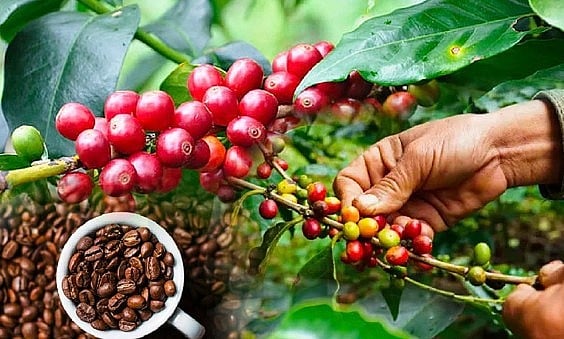 |
| Building a high quality Vietnamese Coffee brand that is competitive enough in the international market |
One of the important goals and contents of this Project is to build a high-quality Vietnamese Coffee brand that is competitive enough in the international market, ensuring that 50% of leading enterprises attach the high-quality Vietnamese coffee brand on product packaging in transactions and sales in the domestic and international markets.
To carry out brand building, the Institute of Policy and Strategy for Agricultural and Rural Development (Ministry of Agriculture and Rural Development) was assigned to develop and register intellectual property protection for the High Quality Vietnamese Coffee Certification Label.
Up to now, the Institute has completed all documents (including the Regulations on management and use, logo, criteria for High-quality Vietnamese Coffee) and submitted the application for protection of the High-quality Vietnamese Coffee Certification Mark for green coffee, roasted coffee and ground coffee products at the Department of Intellectual Property in December 2022.
However, until September 2023, the Intellectual Property Office has not yet granted a certificate of protection for the High-Quality Vietnamese Coffee Certification Trademark. The main obstacle in registering for protection for the High-Quality Vietnamese Coffee Certification Trademark and building a brand for the coffee industry is the lack of a legal corridor and a national name management system. The Ministry of Science and Technology is assigned to research, amend and supplement legal regulations on the use of national names, but the Ministry has not yet implemented them.
Because the High Quality Vietnamese Coffee Certification Mark has not been protected, the Project to promote and advertise the High Quality Vietnamese Coffee brand associated with industry brands and geographical indications submitted by the Ministry of Industry and Trade to the Prime Minister has not been approved.
Regarding the existence and limitations in building and developing brands for key national agricultural products, according to the representative of the Institute of Policy and Strategy for Agricultural and Rural Development, certification labels are mainly assigned to state management agencies, so it is difficult to standardize, evaluate and enforce requirements in managing and controlling certification criteria.
80% of agricultural export products have not yet built a brand.
According to the Ministry of Agriculture and Rural Development, Vietnam currently maintains 11 groups of commodities with export turnover of 1 billion USD or more, of which 7 groups of commodities (wood and wood products, shrimp, coffee, rice, rubber and vegetables, cashew nuts) have export turnover of over 3 billion USD.
Despite achieving impressive export figures, 80% of agricultural exports have not yet built a brand, have no logo, private label, and have not fully participated in the global value chain. Many products are exported and sold in foreign markets under brands that are not owned by Vietnamese enterprises.
Currently, Vietnam does not have any specific policies to support the development of agricultural product brands. Through current propaganda and programs in ministries, branches and localities, many organizations and enterprises have been active and proactive in registering trademarks, protecting intellectual property rights, and developing agricultural product brands, but the development of strong brands (in all 3 groups of national, regional and local products) is still limited.
Therefore, it is necessary to develop a mechanism and policy to support the development of agricultural product brands that is consistent with relevant policies, legal bases and regulations in the Law on promulgation of legal documents.
Policy contents that need to be considered include: Supporting brand building through promoting registration of intellectual property protection domestically and internationally; supporting the implementation of tasks to improve the efficiency of management, exploitation and development of intellectual property; promoting and enhancing the effectiveness of enforcement and combating infringement of intellectual property rights and trademark infringement; supporting the formation and creation of an intellectual property culture and the development of agricultural product brands.
Source link


![[Photo] Prime Minister Pham Minh Chinh starts construction of vital highway through Thai Binh and Nam Dinh](https://vphoto.vietnam.vn/thumb/1200x675/vietnam/resource/IMAGE/2025/5/12/52d98584ccea4c8dbf7c7f7484433af5)
![[Photo] Prime Minister Pham Minh Chinh works with the Standing Committee of Thai Binh Provincial Party Committee](https://vphoto.vietnam.vn/thumb/1200x675/vietnam/resource/IMAGE/2025/5/12/f514ab990c544e05a446f77bba59c7d1)


![[Photo] Prime Minister Pham Minh Chinh receives Swedish Minister of International Development Cooperation and Foreign Trade](https://vphoto.vietnam.vn/thumb/1200x675/vietnam/resource/IMAGE/2025/5/12/ae50d0bb57584fd1bbe1cd77d9ad6d97)






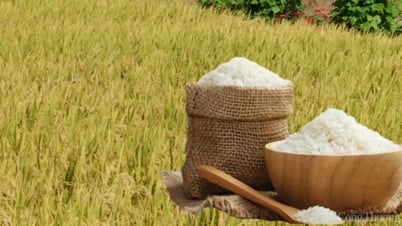





































































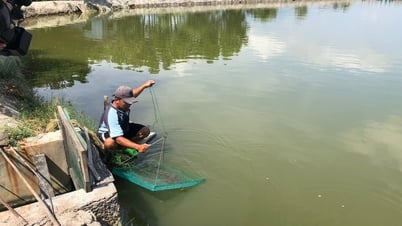














Comment (0)